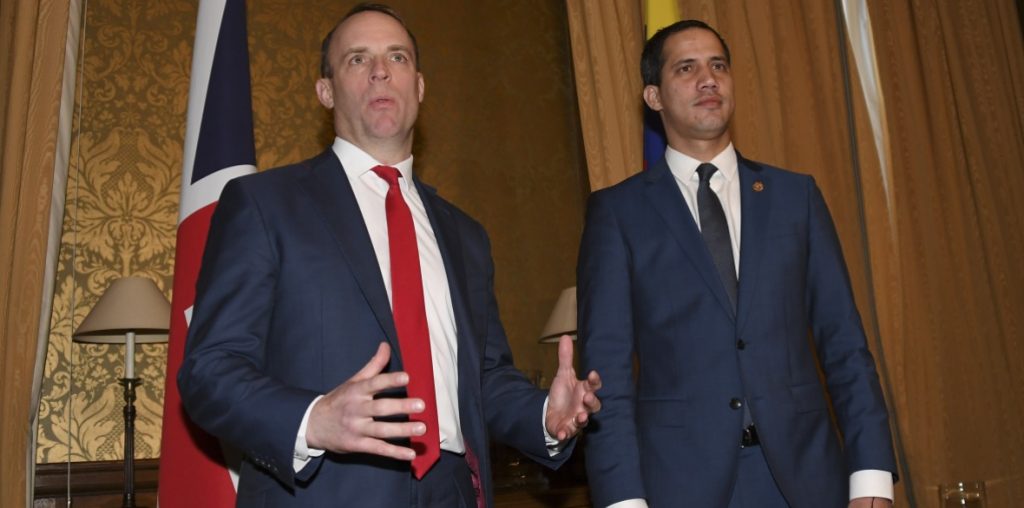From: Morning Star Editorial
THIS month’s vote by Venezuela’s National Assembly to ditch Juan Guaido as its president provided our government and the EU with an opportunity to rethink last year’s craven decision to recognise the unelected stooge as president of his country.
Boris Johnson and Dominic Raab have instead decided to fete this clown in Downing Street, continuing with a foreign policy farce as ineffective as it is unprincipled.
Guaido’s self-declaration as president a year ago was (despite the usual mendacious nonsense spouted by politicians and pundits on our TV screens) a total violation of the Venezuelan constitution.
It continued years in which Venezuela’s right-wing opposition, which won a parliamentary majority in 2015, has sought to subvert, sabotage or overthrow the government of the country’s directly elected President Nicolas Maduro, initially by demanding an early recall election.
When presidential elections were held in 2018, most opposition forces boycotted them rather than admit they were not likely to win.
Efforts to overthrow the Bolivarian revolution had already included campaigns of extreme violence which in 2014 and 2017 claimed hundreds of lives, an announcement by masked armed men in military fatigues of a revolt in a video publicised by the New York Times, a helicopter gunship attack on the Supreme Court and an armed assault on a military base.
All measures taken by the Venezuelan authorities to counter these acts of violence were denounced as a draconian crackdown on dissent.
A global propaganda campaign spearheaded by the United States worked for years to discredit and delegitimise Venezuela’s government before Guaido appointed himself president a year ago, paving the way for Britain, most EU governments and the more right-wing of Latin American regimes to recognise him as such — though he had never even stood in a presidential election and his Popular Will party held just 14 of the 167 National Assembly seats (his presidency of the assembly was assumed by a rotation system).
Tragedy and farce have been dancing partners in the Venezuelan opposition’s manoeuvres ever since. When, to his evident surprise, declaring himself president on TV failed to transform his dreams into reality, Guaido sought to mobilise opposition to the government on the streets — only to find that supporters of the legitimate government were mobilising in still larger numbers.
By April he was attempting a military coup, again with no success whatever.
He was linked to Colombian paramilitaries and embroiled in corruption scandals concerning the misappropriation of humanitarian aid.
High-profile stunts such as trying to deliver US aid into Venezuela (absurd given US sanctions are responsible for food and medicine shortages in the first place) failed.
A year on and Guaido has nothing to show for this charade. He has not shaken the authority of Venezuela’s government and he has now been voted out by the National Assembly whose presidency was his only actual political post, denounced for corruption and double standards by his own opposition colleagues.
Yet the damage being done to the Venezuelan people by the US and EU recognition of his fictional regime is very real.
It has intensified the economic war being waged against the country, which has seen its assets abroad frozen or seized, including by the Bank of England, and funds belonging to the country by right being redirected to a coterie of US puppets playing at being some kind of government in exile (though he has not been exiled: Venezuelan opposition claims to be subject to harsh persecution often turn out to be exaggerated).
Our government is unconcerned by its lack of any moral right to tell Venezuelans who their president is. But it should be embarrassed by the ridiculousness of according a nobody with no legitimacy or power the status of a foreign national leader.
Pressure must be brought to bear to draw it away from Donald Trump’s regime-change project.

